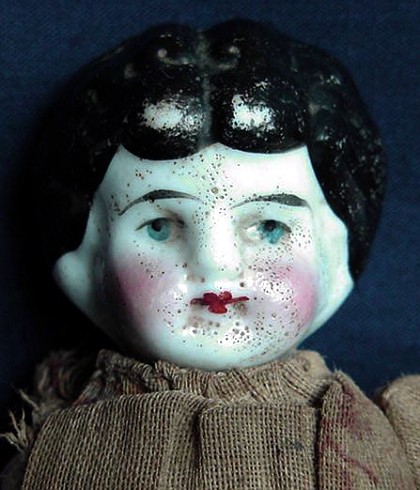A little further down the Passage there was a family of bookbinders. Their children never went out. The mother was a baroness. De Caravals was her name. She didn't want her children to learn bad language at any cost.
They played together all year long behind the windowpanes, putting their noses in each others' mouths and both hands at the same time. Their complexions were like celery.
Once a year Madame de Caravals took a vacation all by herself. She'd go visiting her cousins in Périgord. She told everybody how her cousins came to meet her at the station in their "break" drawn by four prize-winning horses. They would drive together through endless estates . . . The peasants would troop out to kneel on the castle drive as they passed . . . that was the kind of stuff she dished out.
One year she took the kids with her. She came back alone in the wintertime, much later than usual. She had on deep mourning. You couldn't see her face behind the veils. She offered no explanation. She went straight up to bed. She never spoke to anybody after that.
The change had been too much for those children who never went out. The fresh air had killed them . . . That disaster gave everyone pause. From the rue Thérèse to the Place Gaillon all you heard about was oxygen . . . for more than a month.
-- Louis-Ferdinand Céline, Death on the Installment Plan, tr. Ralph Mannheim (New York: New Direections, 1971), 69-70.
